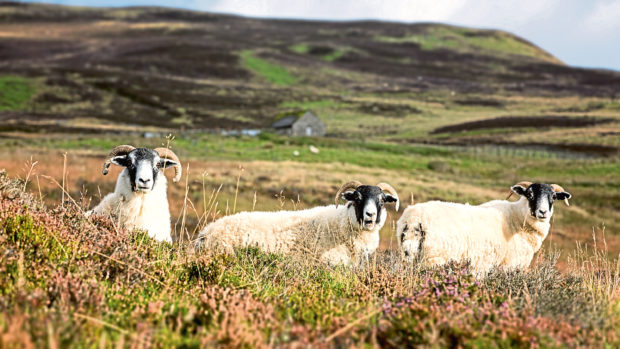The opening salvo in an ambitious campaign to reinstate £65 million of Less Favoured Areas (LFA) support to Scotland’s hills and uplands has been fired by the farmers’ union.
NFU Scotland (NFUS) believes farming and crofting in remote areas can only be secured in the short to medium term by the underpinning and updating of the Less Favoured Areas Support Scheme (LFASS) and the guarantee of continued support until 2024.
However, reinstating the scheme is a tall order which would require the Scottish Government to commit not just to a £65m budget, but also the unpicking of legislation recently passed in the Scottish Parliament which would otherwise lead to the demise of the entire scheme.
The union is also adamant the £70m which remains in the convergence funds pot must not be used to top up LFASS payments, but should be used on “constructive” or investment projects as originally intended.
The broader benefits of agriculture to the hills and uplands are emphasised in the union’s latest policy document, which focuses not only on the LFA as the backbone of Scotland’s cattle and sheep breeding, but the way farming activities underpin biodiversity, carbon sequestration, landscapes, tourism, jobs, communities and cultural heritage.
At the launch of Less Favoured Areas – Delivering for Scotland, NFUS president Andrew McCornick emphasised the need for stability during what he said will be a turbulent period for farmers and crofters when the UK leaves the EU.
Mr McCornick said: “To ensure funds are targeted at active businesses delivering for Scotland’s rural and remote areas, we also outlined necessary changes to the beef calf scheme (SSBSS) and the ewe hogg scheme (SUSSS).
“Together with LFASS, these will ensure farming and crofting remain the economic catalyst behind many of Scotland’s remote and island communities, and will continue to generate non-market benefits that are clearly in the public interest.”
Robert Macdonald, chairman of the union’s LFA committee, who farms at Grantown-on-Spey, said for farmers and crofters on the poorest land, LFA payments were a lifeline, and he was optimistic Holyrood would back the proposal.
He added: “LFA payments are the glue that holds farming and crofting together on the west coast and the islands, otherwise there would be tourism and nothing else in these places, and Scotland’s food and drink industry depends on having a vibrant LFA.”










